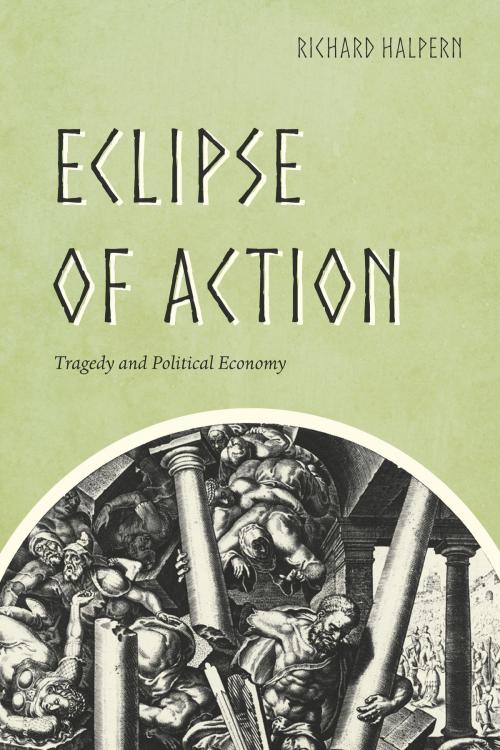Eclipse of Action
Tragedy and Political Economy
Fiction & Literature, Literary Theory & Criticism, Drama History & Criticism| Author: | Richard Halpern | ISBN: | 9780226433790 |
| Publisher: | University of Chicago Press | Publication: | March 13, 2017 |
| Imprint: | University of Chicago Press | Language: | English |
| Author: | Richard Halpern |
| ISBN: | 9780226433790 |
| Publisher: | University of Chicago Press |
| Publication: | March 13, 2017 |
| Imprint: | University of Chicago Press |
| Language: | English |
According to traditional accounts, the history of tragedy is itself tragic: following a miraculous birth in fifth-century Athens and a brilliant resurgence in the early modern period, tragic drama then falls into a marked decline. While disputing the notion that tragedy has died, this wide-ranging study argues that it faces an unprecedented challenge in modern times from an unexpected quarter: political economy.
Since Aristotle, tragedy has been seen as uniquely exhibiting the importance of action for human happiness. Beginning with Adam Smith, however, political economy has claimed that the source of happiness is primarily production. Eclipse of Action examines the tense relations between action and production, doing and making, in playwrights from Aeschylus, Marlowe, Shakespeare, and Milton to Beckett, Arthur Miller, and Sarah Kane. Richard Halpern places these figures in conversation with works by Aristotle, Smith, Hegel, Marx, Hannah Arendt, Georges Bataille, and others in order to trace the long history of the ways in which economic thought and tragic drama interact.
According to traditional accounts, the history of tragedy is itself tragic: following a miraculous birth in fifth-century Athens and a brilliant resurgence in the early modern period, tragic drama then falls into a marked decline. While disputing the notion that tragedy has died, this wide-ranging study argues that it faces an unprecedented challenge in modern times from an unexpected quarter: political economy.
Since Aristotle, tragedy has been seen as uniquely exhibiting the importance of action for human happiness. Beginning with Adam Smith, however, political economy has claimed that the source of happiness is primarily production. Eclipse of Action examines the tense relations between action and production, doing and making, in playwrights from Aeschylus, Marlowe, Shakespeare, and Milton to Beckett, Arthur Miller, and Sarah Kane. Richard Halpern places these figures in conversation with works by Aristotle, Smith, Hegel, Marx, Hannah Arendt, Georges Bataille, and others in order to trace the long history of the ways in which economic thought and tragic drama interact.















